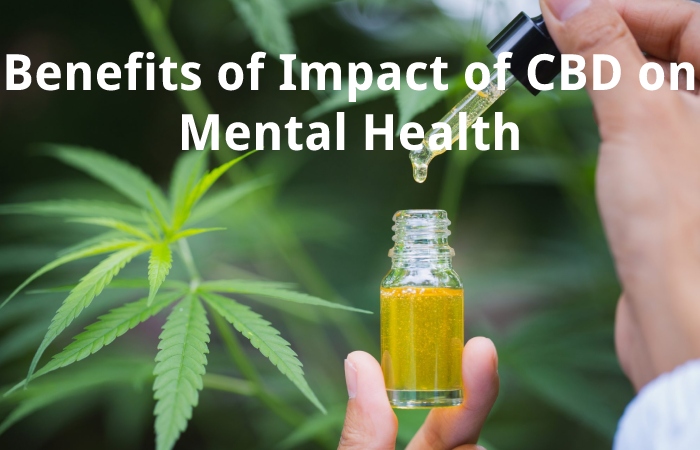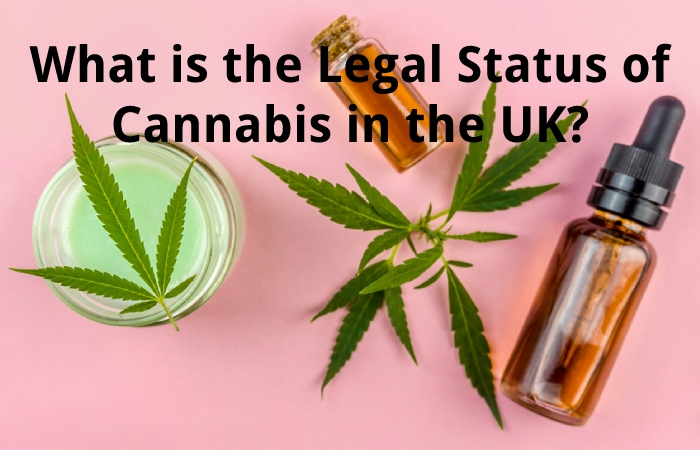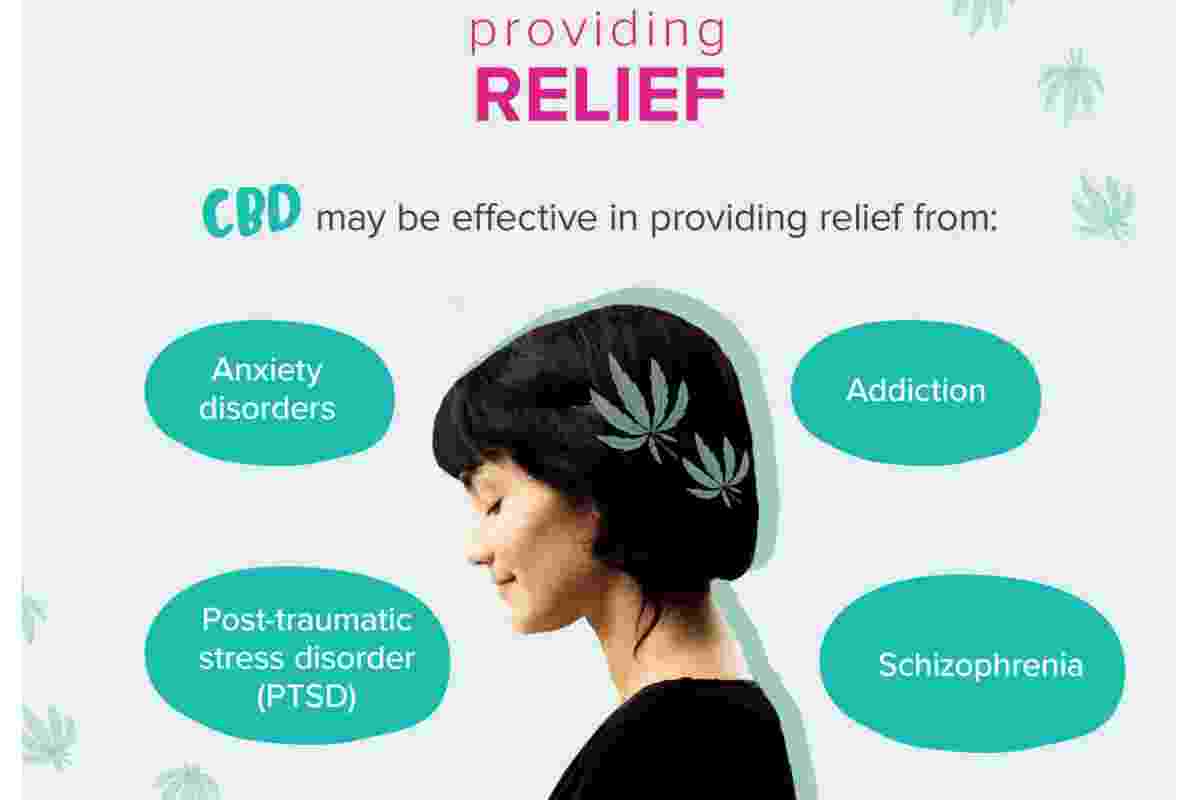Table of Contents
The Impact of CBD on Mental Health
The impact of CBD on mental health in which a person is balanced is CBD’s full name is Cannabis, a natural plant that originates in large geographical areas of the Asian continent. Primitive societies use CBD for mental health and in these areas not only for making tools and clothing but also for its medical properties, which have been known for over 4000 years. The use of cannabis to improve health is due to its high concentration of CBD, or cannabidiol, one of the more than one hundred cannabinoids present in this plant, whose fundamental effect is the activation of cannabinoid receptors that, in turn, influence various functionalities and aspects of human life.
CBD, however, not only has a benefits influence on physical health, acting as a potent anti-inflammatory, analgesic, and anticonvulsant, but also has a powerful positive effect on one of the aspects of general well-being that has traditionally been neglected by medicine; mental health.
What is Mental Health?
Mental health is a state in which a person balances about their environment, whether socially, culturally, occupationally or intellectually. According to the World Health Organization, mental health does not imply merely the absence of disease or infirmity. Still, it encompasses “a state of the whole physical, mental and social well-being”.
Its importance emphasize in modern times as a facilitating factor in human life, underlining its intimate relationship with physical health and accepting their mutual interrelationship so that good mental health is not likely without physical health and vice versa.
What is Cannabis?
Cannabis sativa then cannabis indica remain memberships of the nettle family that have grown naturally throughout the world for centuries. The two plants use the impact of CBD on mental health for various purposes, including hemp to create clothing and textiles, as a medicinal herb, and as a popular recreational drug.
The plant use as:
Resin a black/brown mass known as bhang, ganja, hash, wax, etc.
Herbal cannabis is made from dried flowers and various dried leaves grass, marijuana, joint, maria, cost, etc.
The term skunk (skunk in English) refers to various types of more powerful cannabis cultivated for their high concentration of active substances. The name comes from the plants’ smell when they grow. They grow under grow lights or in a greenhouse, often using hydroponic techniques (they use mineral solutions instead of agricultural soil). Hundreds of other cannabis strains with exotic names like AK-47 or Destroyer exist.
How does Cannabis Work?
Typically, the dried resin or leaves mix with tobacco and are smoked as a “joint.” The smoke is inhaled and held in the lungs for a few seconds. It can also smoke in a pipe, water pipe, or stored in the impact of CBD on mental health tank before inhaling. It can also be used in infusions or as an ingredient in cakes.
When smoked, more than half of its psychoactive chemical ingredients absorbed into the blood. These complexes accumulate in body fat tissues, so they take a long time to eliminate in the urine. This is why cannabis can detect in urine for up to 56 days after the last use.
Benefits of Impact of CBD on Mental Health

In particular, the use of CBD can improve various mental ailments.
Schizophrenia: this disease, which affects half a million people in Spain alone, produces various alterations in sensory perceptions that can lead to a differentiation between the real and the imaginary. In this sense, CBD, being devoid of THC (a psychotropic substance present in cannabis) and stimulating the endocannabinoid system, has been configured as an effective way of controlling the afflictions that this disease causes to sufferers and their environment.
Anxiety: according to the Anxiety and Depression Association of America, it affects 20% of the population. In this sense, several studies carried out both in the United States and in Great Britain accept that CBD, by positively influencing the endocannabinoid system and contributing to the rebalancing of the general body system, improves some of the manifestations of anxiety such as social phobia and fear, two of the most disturbing effects of this disorder.
Autism Spectrum Disorder:
with an overall incidence of about 1 per 160 children, autism is one of commonly affect developmental disorders; CBD can reduce some of the effects that autism has on the sufferer; in particular, reducing seizures, and social anxiety or helping to secede mood swings or irritability associated with this disorder.
Insomnia: Lack of sleep, one of the most frequent occurrences in modern societies, produces a series of pernicious effects both mentally and physically. In this sense, getting adequate rest is the basis for optimal daily performance. High-quality CBD, such as the one you can find on our website verdicbdstore.com, by influencing muscular and emotional tension and stress, promotes a structured sleep pattern that favorite daily energy recovery.
Post-traumatic stress: post-traumatic stress disorder (PTSD) define as a condition that some people may suffer from after experiencing or witnessing a traumatic event themselves. Not only dangerous circumstances, such as natural disasters, violent events or traffic accidents but also events, such as sudden deaths of related people. The effects of post-traumatic stress vary in intensity and duration, ranging from nightmares, shocks or trouble falling asleep to problems concentrating, negative thoughts or outbursts of anger.
Why does Work for CBD on Mental Health Illness?
The endocannabinoid system (ECS) involve in mood regulation. Therefore, balancing the ECS helps balance mood.
CBD improves regional blood flow in the brain, making it useful for anxiety, depression, and PTSD.
Cannabinoids can reduce or replace the need for antidepressants and the more addictive benzodiazepines and anxiolytics. Cannabis can consider an “exit drug”.
CBD has Antidepressant and Anti-Anxiety Effects as it Binds to Serotonin Receptors.
Micro dosing THC can help improve mood and help you fall asleep, especially for those with PTSD.
Cannabis packs with stress-fighting terpenes like beta-caryophyllene and limonene.
Anxiety, depression, and PTSD can all negatively affect the immune system. In depressed and anxious patients have higher levels of inflammatory markers. Cannabinoids can help control this inflammation.
While THC may contraindicate for those with schizophrenia, schizotypal disorders, and bipolar disorder (like antidepressants), CBD may be an antipsychotic. In addition, CBD buffers the effects of THC. If so CBD may be a way to help mental health conditions where psychosis is an issue.
Learn more with Leaf well! If you want to read more about why cannabinoids and terpenes can use for depression, anxiety and PTSD, click on one of the links below:
- cannabis and anxiety
- cannabis and depression
- Cannabis and PTSD.
What is the Legal Status of Cannabis in the UK?

Cannabis was reclassified in January 2009 and is now a Class B drug under the Misuse of Drugs Act of 1971.
The maximum penalties are:
- For possession: 5 years in prison, own limit fine, or both.
- For trafficking and sale: 14 years in jail, son, limit fine, or both.
- Cannabis possession in young people
- A young person found to have cannabis could:
- arrest
- to a police station
- receive a notice (“reprimand” in the UK) or criminal charges.
After a warning, a new infringement could bring with it a final warning (“final warning” in the United Kingdom) or criminal charges.
After the Last Notice:
- The youth may refer to a juvenile delinquency team to design a rehabilitation program.
- a new violation could lead to criminal charges
- Cannabis possession in adults
It usually involves a notice (“warning” in the UK) and drug seizure. Some cases may lead to arrest and warning (“caution” in the UK) or criminal proceedings, such as:
- recidivism
- consumption in public
- threats to public order.
Conclusion
A cannabis plant contains, on average, about 400 chemical complexes. The four main complexes are delta-9-tetrahydrocannabinol (delta-9-THC), cannabidiol, delta-8-tetrahydrocannabinol and cannabinol. Except for cannabidiol, these complexes are psychoactive, with the most potent delta-9-tetrahydrocannabinol. The widest plant varieties contain little cannabidiol (CBD) and a higher delta-9-tetrahydrocannabinol.

